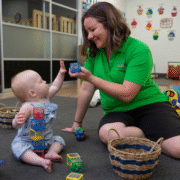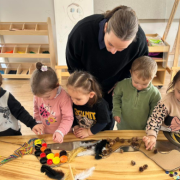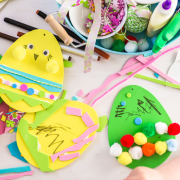From Solo to Social: Understanding the 6 Stages of Early Childhood Play
Playtime from 0–5 is one of the most important ways children learn, grow, and make sense of the world. Through play, children develop social skills, emotional understanding, problem-solving abilities, language, and creativity.
During the early years, children naturally move through six stages of play. Knowing what to expect and how to encourage your child during each stage can help you feel more confident in supporting their development.
At Imagine Childcare, we nurture and encourage these developmental play milestones every day. Our play-based environments are thoughtfully designed to support each stage, helping children explore, experiment, and engage at their own pace.
In this blog, we are unpacking the six stages and how you can guide your little one’s play journey.
- Unoccupied Play (Birth – 3 months)
At this very first stage, babies are not yet “playing” in the way we might imagine. Instead, you’ll notice them making small movements, watching the world around them, or kicking their legs. This may seem simple, but it’s how they begin to explore their environment.
How to encourage it:
- Offer safe, sensory-rich objects (rattles, textured toys).
- Give your baby tummy time to build strength.
- Talk, sing, and smile while they move, your interaction makes the experience meaningful.

- Solitary Play (Birth – 2 years)
Children play alone and focus on exploring toys or activities by themselves. They are not yet interested in interacting with other children and that’s perfectly normal and expected at this age.
How to encourage it:
- Provide age-appropriate toys such as stacking cups, blocks, and shape sorters.
- Allow your child space to play independently.
- Sit nearby to offer reassurance but let them lead.
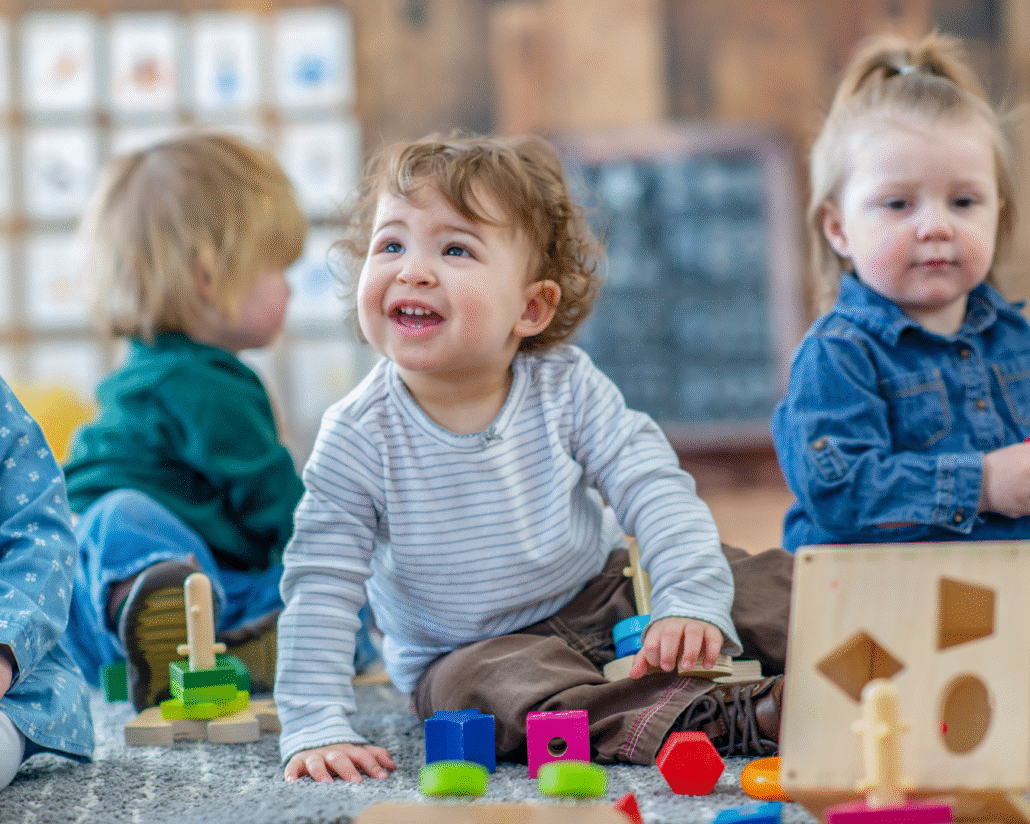
- Onlooker Play (2 years)
At this stage, children begin watching others play without joining in. They’re learning by observing, noticing social interactions, body language, and new ways to play.
How to encourage it:
- Model play by engaging with toys yourself while your child watches.
- Provide opportunities for your child to observe siblings or peers.
- Narrate what’s happening in play (“Look, she’s rolling the ball to her friend”).

- Parallel Play (2 – 3 years)
Children now play alongside others but don’t directly interact. They may use the same toys or sit close together, but their play remains separate. This is a vital step toward social play.
How to encourage it:
- Set up playdates or small group activities.
- Offer toys that can be shared, like blocks or playdough.
- Sit with your child and mirror their play to model connection.
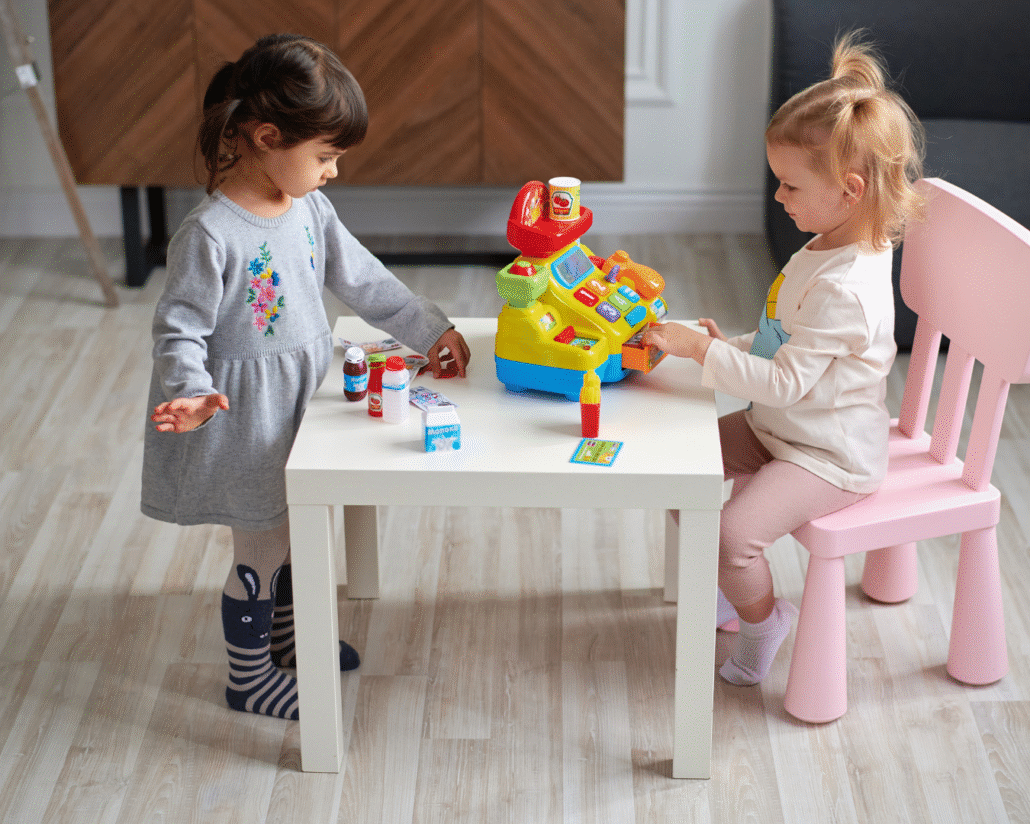
- Associative Play (3 – 4 years)
At this point, children are beginning to interact with others, sharing toys and ideas, but the play may not yet be fully organised. For example, two children may build towers side by side and occasionally exchange blocks.
How to encourage it:
- Provide open-ended toys like dress-ups, art supplies, or building materials.
- Encourage turn-taking games.
- Praise cooperative moments (“I love how you shared your truck with your friend”).
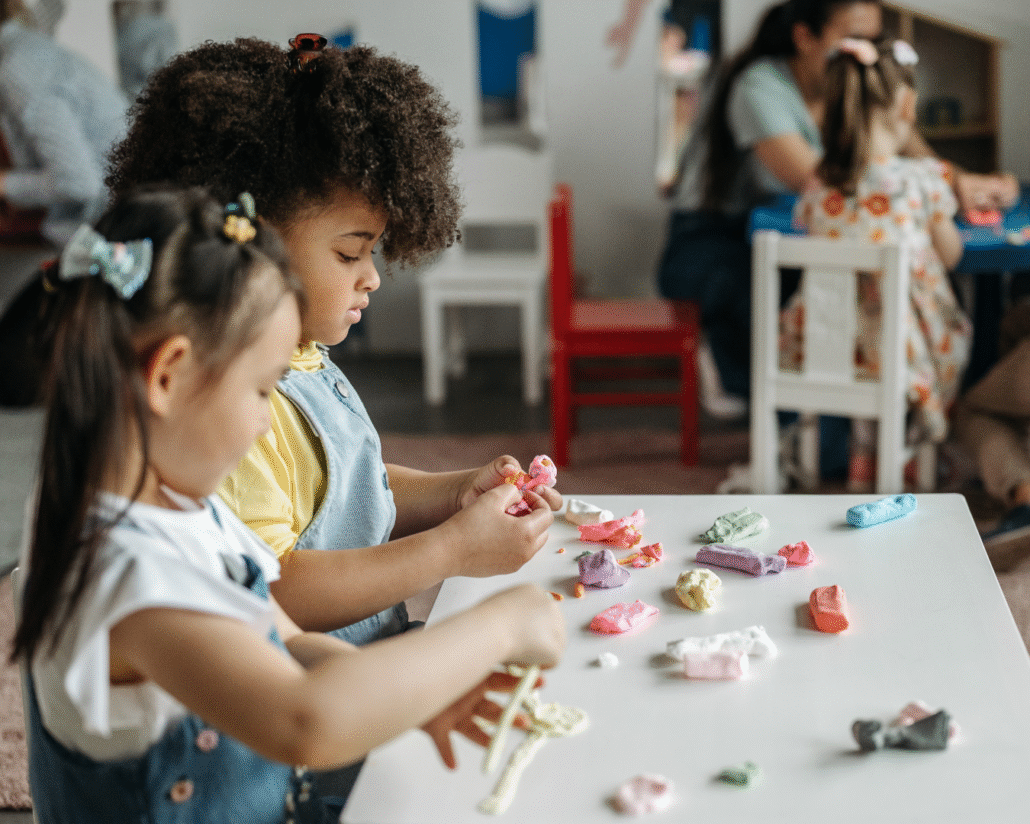
- Cooperative Play (4 – 5 years)
This is the most advanced stage of play in the early years. Children now play together with shared goals and rules whether it be building cities with blocks, playing pretend, or inventing group games. Cooperative play builds teamwork, empathy, and problem-solving.
How to encourage it:
- Suggest group activities like board games, role play, or outdoor games.
- Provide props for imaginative play (kitchen sets, costumes, dolls).
- Support children in resolving conflicts by modelling positive communication.
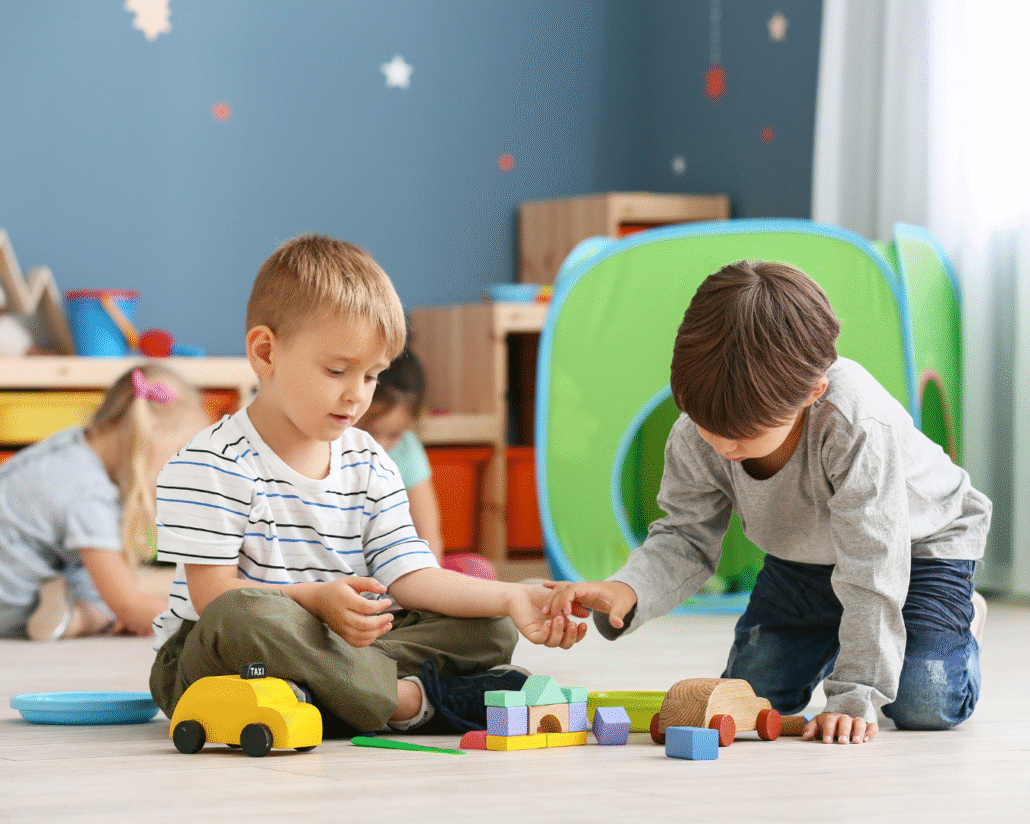
Each stage of play is a building block for learning. Even if your child prefers to play alone or just observe, they are still developing important skills. By recognising and supporting each stage, you’re helping your child gain confidence, independence, and social awareness.
Don’t rush your child through the stages, each one is valuable. With your support, encouragement, and the right environment, your child will naturally move forward in their play journey.
At Imagine Childcare, we carefully design play-based environments and interactions to nurture every stage of development, helping children grow, explore, and thrive.
Follow us on Facebook to see how we incorporate these milestones into our everyday learning environments!
- Imagine Childcare and Kindergarten Andergrove
- Imagine Childcare and Kindergarten Bushland Beach
- Imagine Childcare and Kindergarten Southport
- Imagine Childcare and Kindergarten Collingwood Park
- Imagine Childcare and Kindergarten Fairfield Waters
- Imagine Childcare and Kindergarten Flagstone
- Imagine Childcare and Kindergarten Holmview
- Imagine Childcare and Kindergarten Jensen
- Imagine Childcare and Kindergarten Marsden
- Imagine Childcare and Kindergarten Maryborough
- Imagine Childcare and Kindergarten Nerang
- Imagine Childcare and Kindergarten Rochedale South
- Imagine Childcare and Kindergarten West End
- Imagine Childcare and Kindergarten Coburg
- Imagine Childcare and Kindergarten Cranbourne
- Imagine Childcare and Kindergarten Oakleigh South
- Imagine Childcare and Kindergarten Werribee
- Imagine Childcare and Kindergarten Blakeview
- Imagine Childcare and Preschool Ballina
- Imagine Childcare and Preschool Blueridge Park
- Imagine Childcare and Preschool Grafton
- Imagine Childcare and Preschool Nowra
- Imagine Childcare and Preschool Orange
- Imagine Childcare and Preschool Tamworth
Imagine Childcare and Kindergarten Smithfield and Imagine Childcare and Kindergarten Melton are opening soon. Follow them on Facebook to receive regular updates on their progress.


